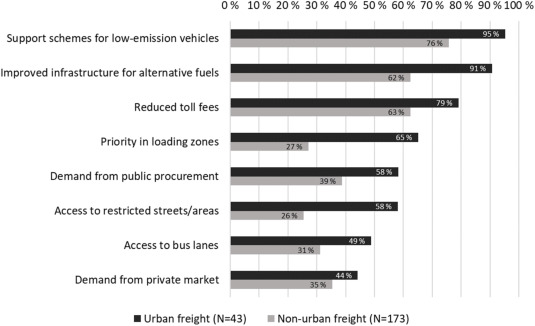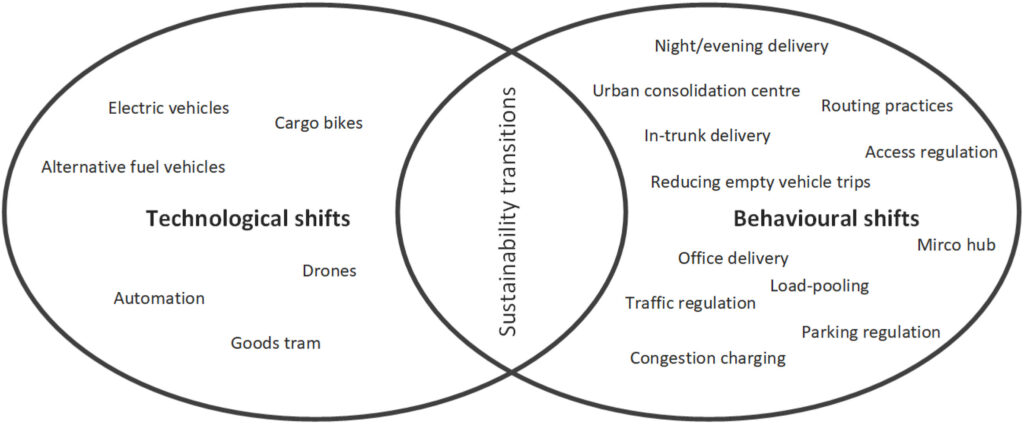E-commerce is becoming an increasingly visible feature of modern society that places increasing strain on transport systems. Research has hitherto paid substantial attention to ways e-commerce might modify personal travel behavior. Still, it has been less attentive to the ramifications of e-commerce for urban freight.
Although contemporary conditions of urban freight are increasingly scrutinized by scholars in several disciplines, this study peeks into the future of urban freight from the scholarly perspective of sustainability transitions. Specifically, researchers investigated what expectations Norwegian freight providers hold for the transition pathways of their sector.
The Norwegian urban freight sector expects technological shifts to be most prominent, pointing to replacing vans and lorries with low-emission models. Conversely, although deemed important, the urban freight sector orients less towards behavioral shifts that enhance efficiencies within and across freight providers.
The study tends to specific solutions freight providers might implement to reduce emissions from urban freight. Specifically, we have examined what importance freight providers assign to solutions related to technological shifts (i.e., represented by vehicles with lower emissions) and behavioral shifts (i.e., solutions that increase efficiency in freight organization and operation).

To ensure more transformative effects in the transition pathways of urban freight, we thus advise decision-makers in urban planning to establish inclusive approaches to policy-making that enhance the legitimacy of technological and behavioral shifts in urban freight alike.

Source: Ystmark Bjerkan, K., & Babri, S. (2024). Transitioning e-commerce: Perceived pathways for the Norwegian urban freight sector. Research in Transportation Economics, 103, 101391. https://doi.org/10.1016/j.retrec.2023.101391Copy
